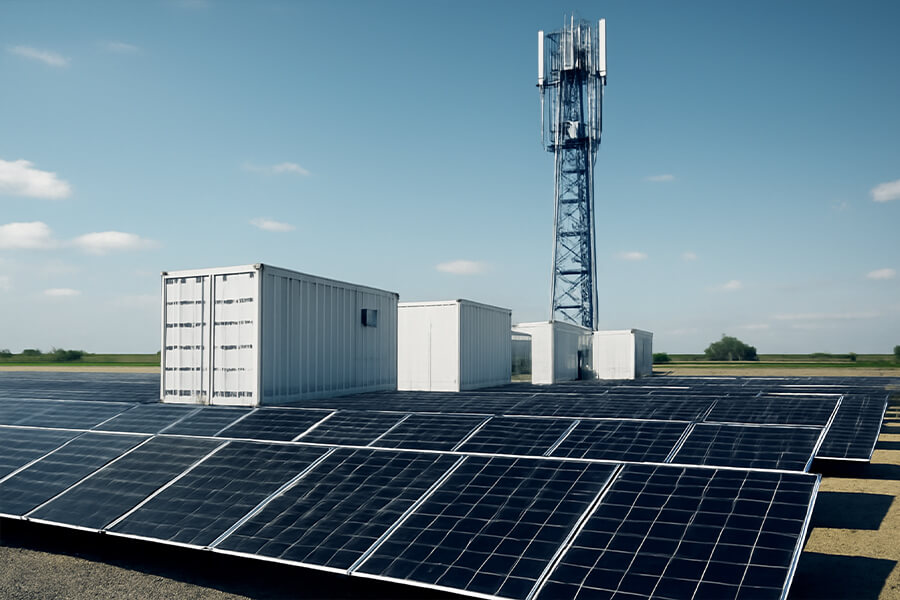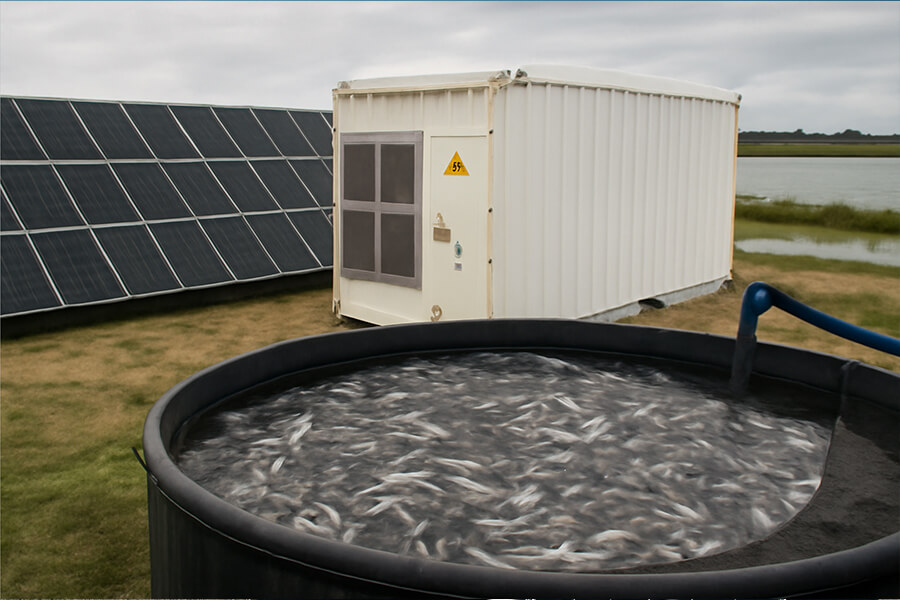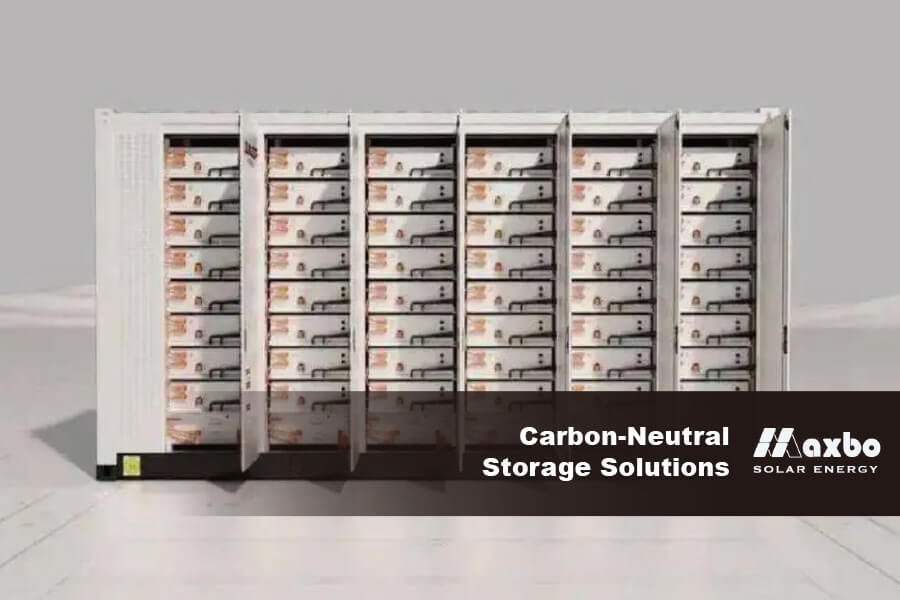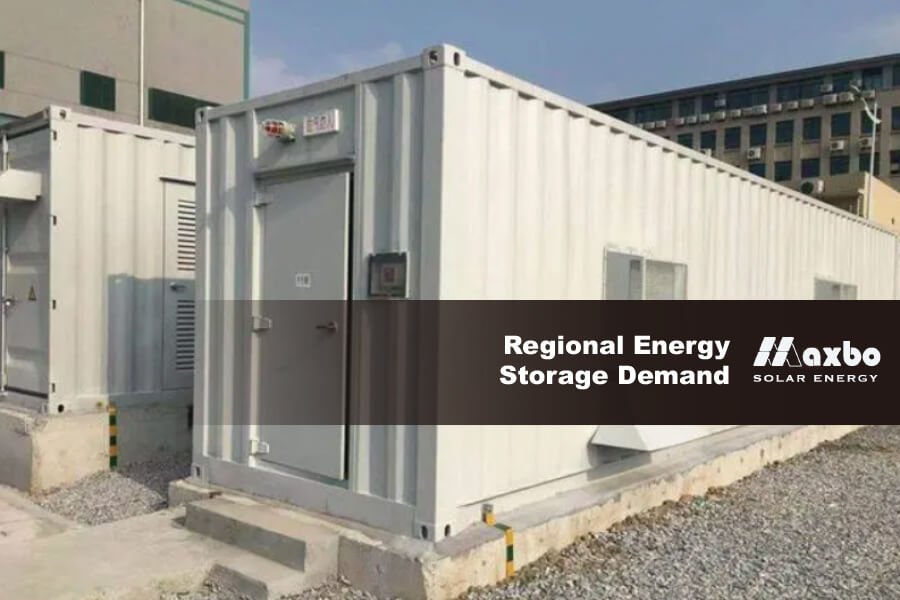High Voltage Energy Storage Systems: 5 Key Advantages for Enhanced Business Efficiency
As businesses strive to optimize energy management and reduce costs, high voltage energy storage systems have emerged as a crucial solution. These systems offer numerous benefits, especially for large-scale industrial and commercial applications. This guide explores the five key advantages of high voltage energy storage systems, their working principles, and their cost considerations. Learn how Maxbo Solar can provide you with cost-effective, high-quality solutions tailored to your needs.
Table of Contents
ToggleWhat is High Voltage Energy Storage?
High voltage energy storage systems are designed to store electrical energy at voltages typically above 1,000 volts. These systems are essential for applications requiring substantial power and efficiency, such as industrial processes and large commercial buildings.
Benefits of High Voltage Energy Storage:
- Enhanced Efficiency: High voltage systems transmit and store energy with reduced losses, improving overall system efficiency.
- Scalability: Suitable for large-scale applications, allowing businesses to scale their energy storage capacity as needed.
- Cost-Effectiveness: By optimizing energy management, high voltage systems can lower operational costs and provide long-term savings.
Reference:
- International Energy Agency (IEA). (2022). “Energy Storage: The Key to Clean Energy.” Retrieved from IEA
High Voltage vs. Low Voltage Energy Storage
Understanding the differences between high voltage and low voltage energy storage helps in selecting the right system for your needs.
1. Voltage Levels and Applications
- High Voltage Energy Storage:
- Voltage Range: Above 1,000 volts.
- Applications: Ideal for industrial processes, large commercial buildings, and renewable energy integration.
- Advantages: Greater efficiency over long distances and higher energy density.
- Low Voltage Energy Storage:
- Voltage Range: Below 1,000 volts.
- Applications: Typically used in residential settings and smaller commercial applications.
- Advantages: Easier to install and maintain; more cost-effective for smaller energy needs.
Reference:
- U.S. Department of Energy. (2021). “Comparing High Voltage and Low Voltage Energy Storage Systems.” Retrieved from Energy.gov
2. Working Principles
- High Voltage Energy Storage:
- Principle: High voltage energy storage systems use high-capacity batteries or other storage technologies to store energy at higher voltages, allowing for efficient long-distance transmission and reduced energy loss.
- Operation: Energy is stored at high voltage and converted to lower voltage for use when needed. These systems include advanced management systems to optimize performance and safety.
- Low Voltage Energy Storage:
- Principle: Low voltage systems operate at lower voltages and are typically used for more localized energy storage and distribution.
- Operation: Energy is stored and used at lower voltages, which can be simpler and less costly but may not be suitable for large-scale applications.
Reference:
- IEEE Spectrum. (2021). “High Voltage vs. Low Voltage Energy Storage: An Overview.” Retrieved from IEEE Spectrum
5 Key Advantages of High Voltage Energy Storage
- Increased Efficiency:
- Reduced Losses: High voltage systems experience lower energy losses during transmission, making them more efficient.
- Improved Performance: They can deliver power more efficiently, especially over long distances.
- Scalability:
- Modular Design: These systems can be scaled up to meet increasing energy demands, providing flexibility for future growth.
- Flexible Integration: They can be integrated with renewable energy sources and other power systems, enhancing overall energy management.
- Cost Savings:
- Lower Operational Costs: Efficient energy management reduces operational costs, leading to significant savings over time.
- Long-Term Investment: High voltage systems often provide better returns on investment, making them a cost-effective choice in the long run.
- Enhanced Performance:
- Higher Energy Density: High voltage systems can store more energy in a compact space, maximizing storage capacity.
- Reduced Maintenance: Advanced technologies and efficient designs result in lower maintenance requirements.
- Flexibility:
- Adaptability: These systems can be adapted to various applications and energy needs, from industrial operations to large commercial buildings.
- Custom Solutions: High voltage systems can be customized to fit specific requirements and optimize performance.
Reference:
- Journal of Energy Storage. (2022). “Benefits and Challenges of High Voltage Energy Storage Systems.” Retrieved from Elsevier
Pricing and Cost Estimates
The cost of high voltage energy storage systems varies based on factors such as capacity, technology, and installation requirements. Here’s a general breakdown:
- High Voltage Battery Packs: $500,000 – $750,000 per MWh
- Inverters and Management Systems: $50,000 – $75,000
- Installation and Integration: $100,000 – $150,000
Total Estimated Cost: $650,000 – $975,000
Reference:
- BloombergNEF. (2023). “Cost Trends in High Voltage Energy Storage.” Retrieved from BloombergNEF
Maxbo Solar’s High Voltage Energy Storage Solutions
Maxbo Solar is dedicated to offering top-quality high voltage energy storage solutions that provide both performance and value. Our services include:
- High-Efficiency Battery Systems: Our high voltage batteries are designed for reliability and efficiency, helping you achieve significant cost savings.
- Advanced Inverter Solutions: We provide state-of-the-art inverters that enhance energy conversion and system performance.
- Comprehensive Management Systems: Our solutions come with robust management systems to ensure optimal performance and safety.
Customization and Support: Maxbo Solar offers personalized consultations to tailor high voltage energy storage systems to your specific needs and budget. We handle everything from design to installation and maintenance.
Cost-Effective Solutions: We offer competitive pricing and detailed cost estimates, along with guidance on available incentives and rebates to make your investment more affordable.
For more information and to explore our high voltage energy storage solutions, visit Maxbo Solar.
Conclusion
High voltage energy storage systems offer substantial benefits for businesses seeking to optimize energy management and achieve long-term cost savings. By understanding their principles, advantages, and costs, you can make informed decisions that enhance your operational efficiency.
Maxbo Solar is committed to helping you achieve your energy goals with our high-quality, cost-effective energy storage solutions. Contact us today to learn how we can support your business with our advanced energy storage systems.
References:
- International Energy Agency (IEA). (2022). “Energy Storage: The Key to Clean Energy.” Retrieved from IEA
- U.S. Department of Energy. (2021). “Comparing High Voltage and Low Voltage Energy Storage Systems.” Retrieved from Energy.gov
- IEEE Spectrum. (2021). “High Voltage vs. Low Voltage Energy Storage: An Overview.” Retrieved from IEEE Spectrum
- Journal of Energy Storage. (2022). “Benefits and Challenges of High Voltage Energy Storage Systems.” Retrieved from Elsevier
- BloombergNEF. (2023). “Cost Trends in High Voltage Energy Storage.” Retrieved from BloombergNEF
Maxbo Solar is here to help you maximize your energy efficiency with our top-notch high voltage energy storage solutions. Contact us to get started!
Related Solutions
Related Blogs
BESS Container Telecom Edge Power: Deploy 5G Towers & Data Centers Off-Grid (No Diesel Tantrums!)
行政2025-07-11T17:04:49+08:00July 11th, 2025|Categories: Design, News|
BESS Container Fish Farm Heroes: Stop Fish Fainting During Grid Meltdowns
行政2025-07-11T17:04:35+08:00July 11th, 2025|Categories: Design, News|
Let’s Make Things Happen
Add notice about your Privacy Policy here.
Let’s Make Things Happen
”The Maxbo team of sales consultants will continue to enrich our own expertise and experience to empower the development of sustainable energy with rigor.“
Maxbo CEO
You will need to provide: 1. the amount of electricity used. 2. the type and power of the load. 3. the electricity consumption habits (daytime/nighttime consumption). 4. the need to store electricity. 5. the need to feed electricity to the mains. 6. drawings or address of the installation site. 7. other special requirements
We can provide you with a quotation, a specification for all products, a circuit connection diagram and a diagram of the installation and placement of the PV panels. Any other requirements and adjustments needed can be discussed with our team.
We can meet the needs of most scenarios, whether your application is for domestic, commercial and industrial use, in remote areas, or for grid-level energy storage, we have experienced colleagues to design and deliver the right solution.
Add notice about your Privacy Policy here.
How much solar power do I need?
Most homes need 5–12kW, depending on your energy use and location.
Off-grid vs. grid-tied — what’s the difference?
Off-grid works without the utility grid; grid-tied lets you sell extra power back.
Do I need permits?
Usually yes — check local rules or ask us for guidance.
How long does a battery last?
Depends on size and load. A 5kWh battery can power a fridge for about 40 hours.
Can I upgrade my system later?
Yes, our systems are modular and easy to expand.
Does Maxbo offer installation?
We ship globally and connect customers with trusted local installers.






